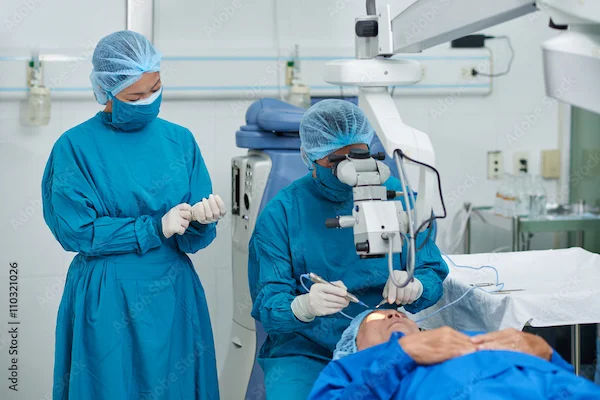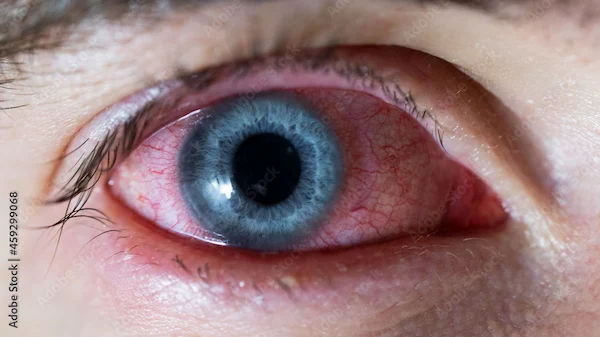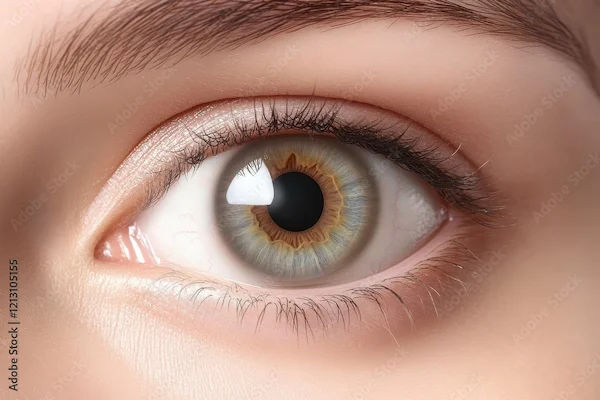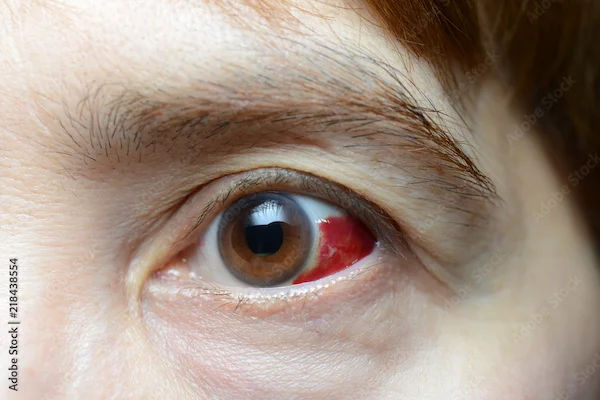Vision Improvement After Cataract Surgery
Wondering how soon your vision will improve after cataract surgery? Learn what to expect during recovery, when vision stabilises, and tips for clearer sight.

Written by Dr.Sonia Bhatt
Last updated on 15th Jul, 2025
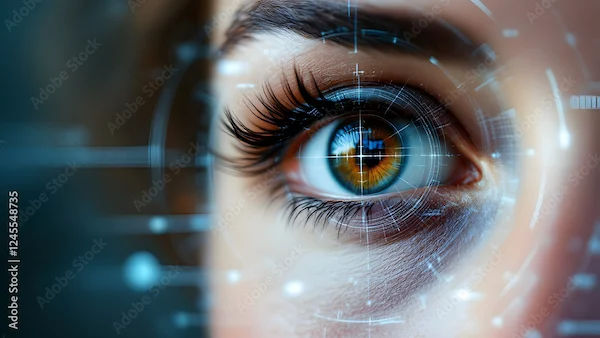
Introduction
Cataract surgery is a common and highly effective procedure that helps restore clear vision for millions of people worldwide. If you or a loved one is considering or has recently undergone cataract surgery, you may have questions about what to expect in terms of vision improvement. This article will guide you through the recovery process, expected outcomes, and tips for maintaining healthy vision post-surgery.
Understanding Cataract Surgery
A cataract is a clouding of the eye's natural lens, which leads to blurry vision, difficulty seeing at night, and faded colours. Cataract surgery involves removing this cloudy lens and replacing it with an artificial intraocular lens (IOL). The procedure is quick, safe, and performed under local anaesthesia.
How Soon Will Vision Improve After Surgery?
Many patients notice an improvement in their vision within a few days after surgery, but full recovery can take a few weeks. Here’s a general timeline:
First 24-48 Hours: Your vision may be blurry or hazy as your eye adjusts.
First Week: Vision starts to stabilise, but you may still experience mild fluctuations.
2-4 Weeks: Most patients achieve their best possible vision as the eye fully heals.
Factors like pre-existing eye conditions, such as glaucoma or macular degeneration, may affect recovery time.
Consult Top Specialists for Personalised Health Advice
What to Expect After Surgery?
Here’s what you might feel and see in the days and weeks after cataract surgery.
1. Immediate Post-Surgery Effects
Mild discomfort, itching, or a gritty feeling in the eye.
Sensitivity to light and glare.
Watery or slightly red eyes.
2. Gradual Vision Improvement
Colours appear brighter as the cloudy lens is replaced.
Improved clarity for reading, driving, and daily activities.
Reduced dependence on glasses, depending on the type of IOL used.
3. Possible Side Effects (Usually Temporary)
Dry Eyes: Artificial tears can help.
Halos or Glare at Night: Typically fades within weeks.
Mild Blurriness: Resolves as the eye heals.
If you experience severe pain, sudden vision loss, or flashes of light, contact your doctor immediately.
Tips for a Smooth Recovery
Following a few simple steps can help protect your eyes and speed up healing.
1. Follow Your Doctor’s Instructions
Use prescribed eye drops to prevent infection and inflammation.
Avoid rubbing or pressing on your eye.
Wear a protective shield while sleeping, as advised.
2. Protect Your Eyes
Wear sunglasses outdoors to shield against UV rays.
Avoid swimming or dusty environments for a few weeks.
3. Adjust to Your New Vision
Give your eyes time to adapt to the new lens.
If you still need glasses, wait until your doctor confirms your prescription is stable.
4. Maintain a Healthy Lifestyle
Eat eye-friendly foods like leafy greens, fish and nuts.
Stay hydrated to prevent dry eyes.
Avoid smoking, as it can slow healing.
When to Consult Your Doctor?
While cataract surgery is generally safe, contact your eye specialist if you experience:
Severe or worsening pain
Sudden vision loss
Increased redness or swelling
Persistent floaters or flashes of light
If you're experiencing cataract symptoms or have concerns about post-surgery recovery, Apollo 24|7 offers expert consultations and eye care services. You can easily schedule an appointment or order eye tests from the comfort of your home.
Final Thoughts
Cataract surgery is a life-changing procedure that can significantly improve your vision and quality of life. With proper care and patience, most patients enjoy clear, sharp vision within weeks. If you have any doubts or need personalized advice, don’t hesitate to reach out to an eye specialist.
Take the first step towards better vision—schedule a consultation today!
Consult Top Eye Specialists
Consult Top Specialists for Personalised Health Advice
Dr. S Venkateswaran
Ophthalmologist
35 Years • MBBS, PGD (OPTHALMOLOGY)
Tiruvannamalai
Shiva Eye And General Hospital, Tiruvannamalai

Dr. Jyoti Dhaka
Ophthalmologist
9 Years • MBBS, Dip in (OPHTHALMOLOGY),DNB (OPHTHALMOLOGY)
Jhujhunu
Dr.Jyoti Dhaka Eye Clinic, Jhujhunu
(25+ Patients)

Dr. Umang Thakkar
Ophthalmologist
2 Years • MBBS,MS OPHTHALMOLOGY
Rajkot
Shree Ramkrishna Eye Hospital, Rajkot
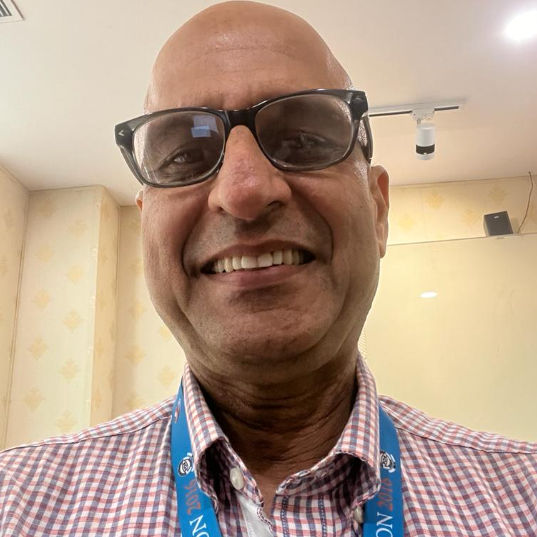
Dr Rajesh Rastogi
Ophthalmologist
33 Years • MBBS, MS Ophthalmology
New Delhi
Rotary Diabetic Centre, New Delhi
Dr A Narasimha Rao
Ophthalmologist
7 Years • MBBS, MS Ophthalmology
Visakhapatnam
Hema Eye Clinic, Visakhapatnam
Consult Top Eye Specialists
Dr. S Venkateswaran
Ophthalmologist
35 Years • MBBS, PGD (OPTHALMOLOGY)
Tiruvannamalai
Shiva Eye And General Hospital, Tiruvannamalai

Dr. Jyoti Dhaka
Ophthalmologist
9 Years • MBBS, Dip in (OPHTHALMOLOGY),DNB (OPHTHALMOLOGY)
Jhujhunu
Dr.Jyoti Dhaka Eye Clinic, Jhujhunu
(25+ Patients)

Dr. Umang Thakkar
Ophthalmologist
2 Years • MBBS,MS OPHTHALMOLOGY
Rajkot
Shree Ramkrishna Eye Hospital, Rajkot

Dr Rajesh Rastogi
Ophthalmologist
33 Years • MBBS, MS Ophthalmology
New Delhi
Rotary Diabetic Centre, New Delhi
Dr A Narasimha Rao
Ophthalmologist
7 Years • MBBS, MS Ophthalmology
Visakhapatnam
Hema Eye Clinic, Visakhapatnam
